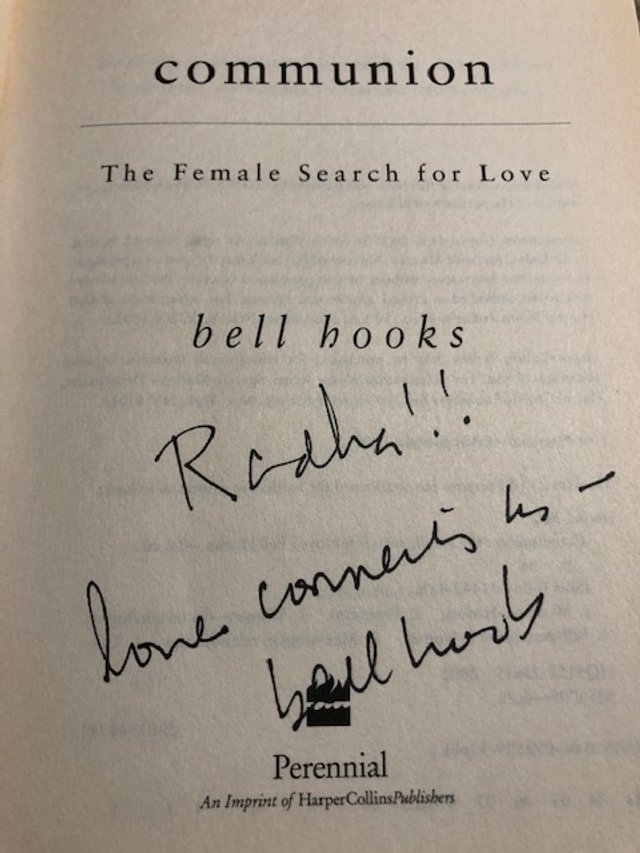On Wednesday, December 15th, right in the middle of a zoom meeting, a text message popped up on my phone from my daughter. I excused myself to read the short gripping text that simply said: “Oh my god bell hooks.” That began a series of reflections about the passing of this incredible ancestor that I feel compelled to articulate as a response to my own sadness. As comrades and co-conspirators who read my blogs, I know that many of you will have an extraordinary story to share about the way in which bell hooks has shaped your journey.
I first encountered her writing – Ain’t I a Woman? - as a new immigrant from Kenya in a Women’s Studies class at Atkinson College, York University. Coming of age in post-colonial Kenya, the courageous critique of what she called “imperialist white supremacist capitalist patriarchy” had a deeply personal resonance. Her immense body of work dares to build platforms at the intersections of race, gender, sexuality, and class. bell hooks exquisitely penned experiences that were so familiar and known to us. She cultivated our imagination and planted seeds of radical love for us to tend. I was even able to read her audacious poems to my daughter because she skillfully made her writing so accessible that older incarcerated people and young children in middle school were all able to embrace her wisdom. Her work challenged the precious elitism of academe and even today, her passion for embedding love in the creation of community sits at the core of critical thinking and theory that I teach in post-secondary classrooms. For myself and my daughter, she was able to bridge the generational gap so that we could read her together. Our tattered old copy of “Teaching To Transgress” has accompanied us from Toronto to Nairobi to Delhi and back, guiding us to work well with the work.
In the Spring of 2004, my then ten-year-old daughter and I attended a talk on Love: Connecting Self and Community by bell hooks in the basement of the Bloor Street United Church. Her prophetic questions were always about how we can fearlessly connect with each other and make meaning in our ordinary lives. How do we value love in our culture? What are some concrete everyday ways to dismantle hegemonic dominance? What are we each doing for the creation of what she called ‘the beloved community’? What are we willing to risk? Her words, so relevant, still holding meaning for us in this time and after decades of political resistance in communities.
I am re-reading her book ‘communion’ and it has even more meaning now in my fifties than it did in my thirties and forties. She writes fluently about the way in which women negotiate and normalize patriarchal authority in their lives. My personal and professional life is littered with instances when owning my power has brought me to incredible adversity and punishment for not following a conventional trajectory. During these sad times, the messages of self-love and staying true to personal truth in bell hooks’ writing kept me going.
bell hooks shaped me to grow into a wildly courageous person and I am filled with gratitude for her teachings. As we heal from this destabilizing loss, there is even more reason for us to collectively continue building from the blueprint of her legacy so that the ground feels less shaky beneath our feet. For she reminds us that “when we engage love as action, we can’t act without connecting.”
Here is a free copy of Ain’t I a Woman: Black Women and Feminism that you may like to read (again): https://hamtramckfreeschool.files.wordpress.com/2014/03/hooks-bell-aint-i-a-woman-black-woman-and-feminism.pdf

